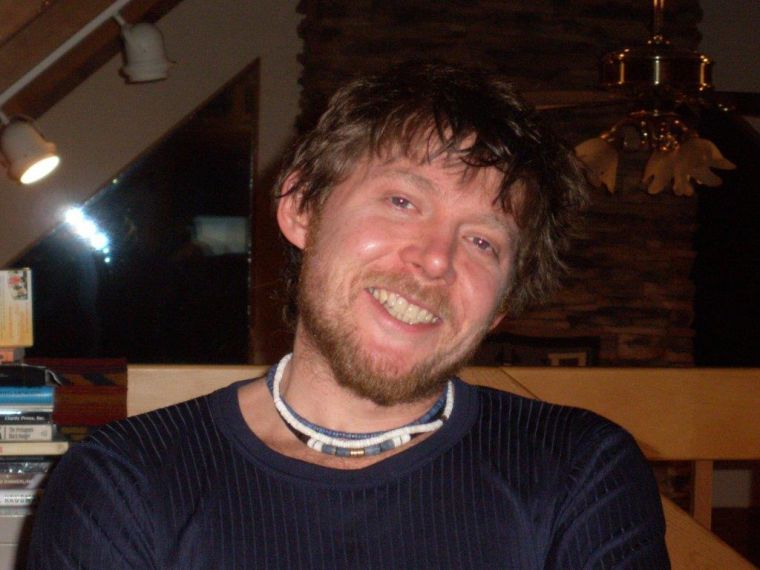Two Fridays ago, around 7 p.m., Neil Young and actress Daryl Hannah were scheduled to make an appearance at the Colorado River footbridge to engage the public on the calamitous issue of climate change.
The celebrity duo were on a cross-country driving tour in Young’s boat-like Lincoln Continental, a 1959 classic which he had converted into a bio-electric behemoth powered by ethanol.
Ethanol on a massive scale, the message went, would save the planet from the ravages of fossil fuels. Young’s website touting the tour had dubbed the vehicle the LincVolt, and it would be a symbol for “Re-powering the American Dream.”
Other big names slated eventually to join the ride included Al Gore, he of the inconvenient Powerpoint and the 10,000-square-foot house.
They were being trailed, of course, by a scurrying documentary film crew, who would capture their every sigh on the journey. But now they were an hour late, probably stuck in the ungodly traffic of the classic car show, whose participants, wreathed in fumes, seemed very much to enjoy the ravages of fossil fuels.
We waited in anticipation, all of us big fans of Neil. Only a few Moabites, maybe a dozen people, were in attendance. My friend Kiley Miller, one of the organizers, had been texting back and forth with Darryl Hannah, who wrote “Yay!” when informed that a crowd – though it wasn’t much of a crowd – would be on hand to greet them.
I imagined Young would jump from his car in rock-n-roll fashion, mingle, spend a few minutes asking questions, explain to us why it mattered that he and Hannah and an ex-vice president were tooling about the country, maybe ponder a moment the meaning of the sign Kiley and the others held up.
“NO TAR SANDS,” the sign said, in reference to proposed energy development in the Book Cliffs.
The duo showed up at dusk. The documentary crew aimed cameras and lights, exhorting the little knot of protesters to shout out.
“No tar sands; save our desert!” the protesters cried.
“More, more,” said the documentary crew. “I need better sound.”
The voices grew louder.
Young and Hannah trawled in the Continental along the road nearest the footbridge as the film crew hovered.
I looked closer in the half-light, and a chill ran down my spine. Hannah was swathed in veils like a pasha’s favorite wife.
For his part, Neil, poor guy, barely moved, his head swiveling mechanically, and I thought perhaps he was a cardboard cut-out.
He muttered to the crowd, “You’re beautiful.”
And that was it – they were gone as the sun finally went down. Daryl had a plane to catch, bound no doubt for protected climes where she didn’t have to hide in veils.
The troubling fact behind this sort of silliness, when celebrities, the rich, the powerful, the well-connected get it into their heads to promote climate action – or in this case to exploit well-meaning locals for a photo-op – is that invariably it serves the status quo.
Take the ethanol market: This is a huge corporate enterprise, with many friends in our corrupted congress, and ethanol, at the scale Young would have it deployed, will require sizable fossil fuel inputs, not least in the form of oil-based fertilizers, to produce from our corporate industrial farms all that green gasoline. Ethanol, like other forms of out-of-scale energy production, is violently extractive.
Neil wants to re-power the American Dream. Nowhere in his campaign, it appears so far, does he dare to ask whether the American Dream – continual economic expansion whose purpose is the piling up of material goods, a dream now no longer American but planetary in its delusional scope – is in fact one of the key drivers of climate change.
As author Naomi Klein wrote in a recent article entitled “Capitalism vs. the Climate,” “The expansionist, extractive mindset, which has so long governed our relationship to nature, is what the climate crisis calls into question so fundamentally. The abundance of scientific research showing we have pushed nature beyond its limits does not just demand green products and market-based solutions; it demands a new civilizational paradigm, one grounded not in dominance over nature but in respect for natural cycles of renewal—and acutely sensitive to natural limits.”
So drive on into the sunset, old man. Your irrelevance is clear when it comes to radical solutions for a radical problem.



